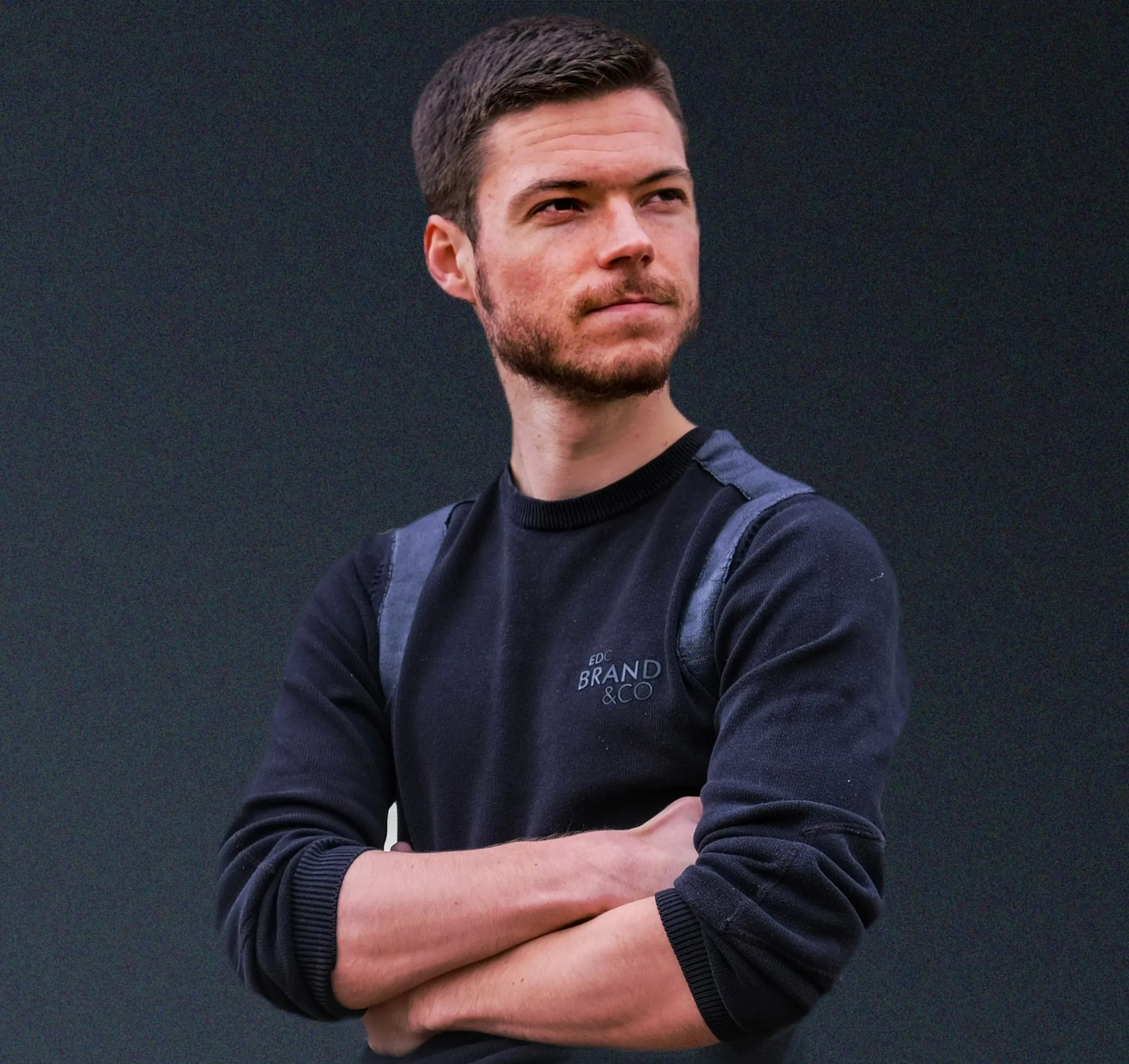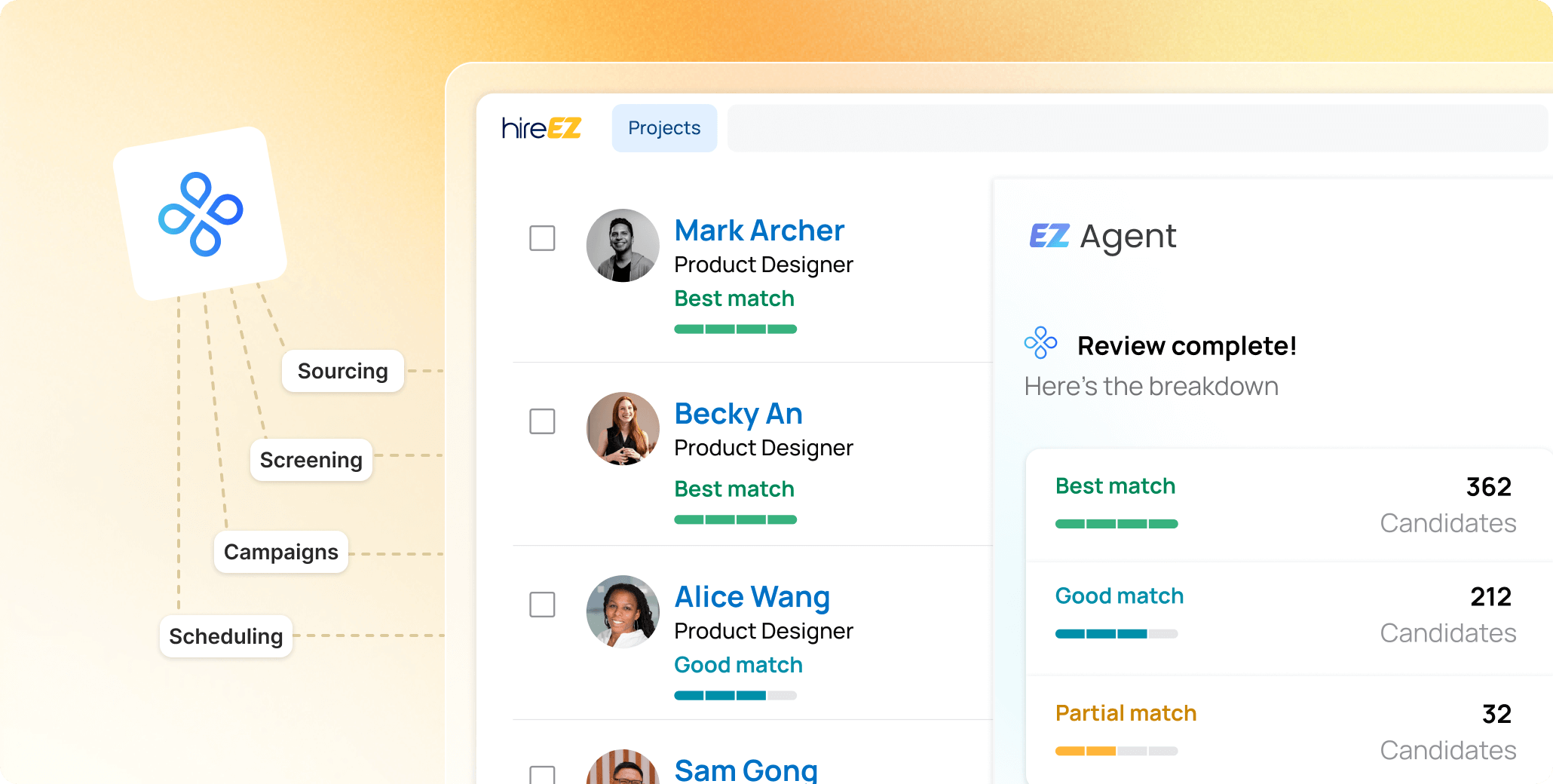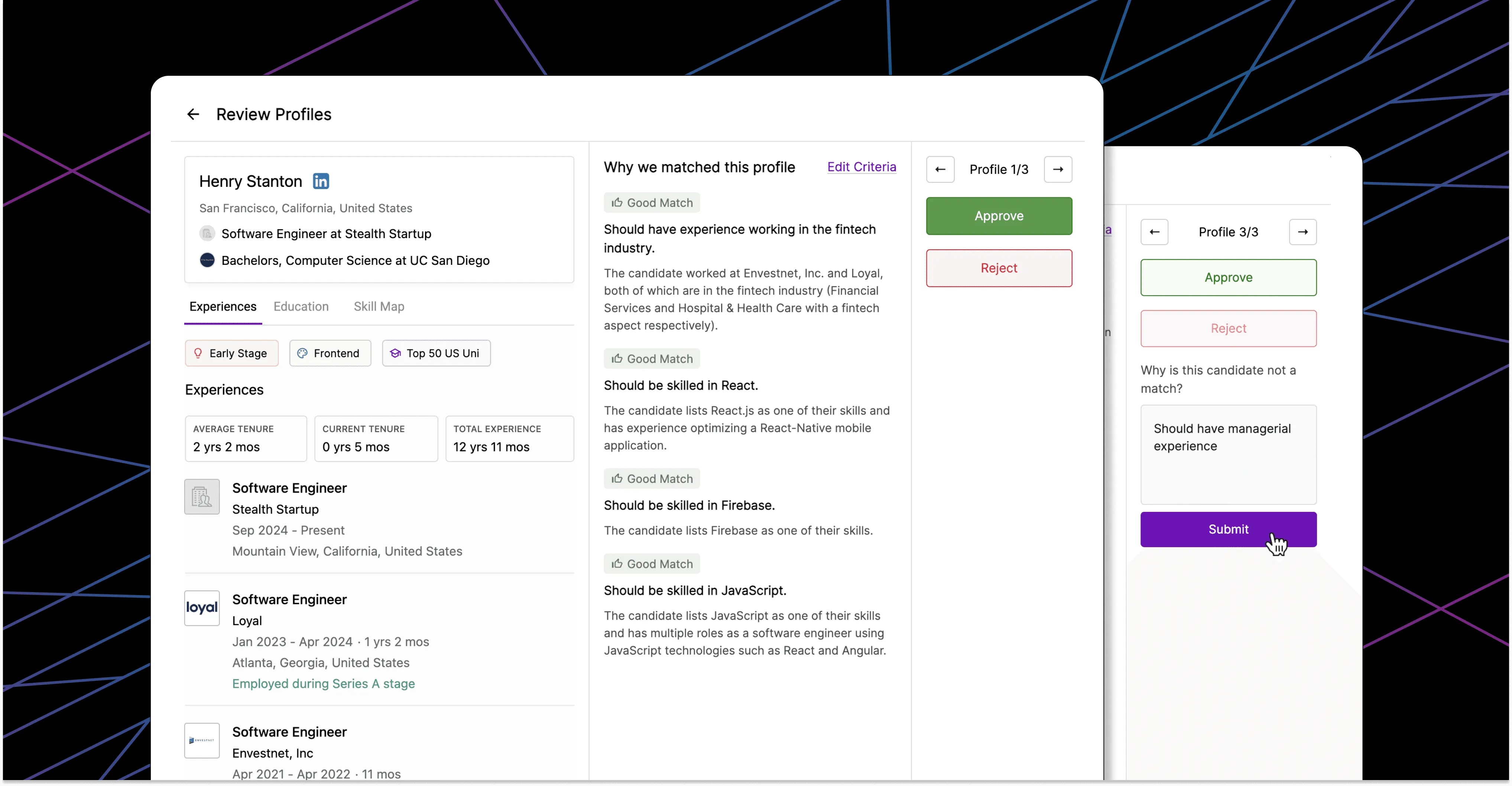How to Conduct an Effective Panel Interview

Panel interviews can provide a more holistic view of a candidate. But they come with their own set of challenges—coordinating multiple perspectives and managing diverse interviewer roles.
In this article, we’ll provide practical strategies to help you plan, execute, and debrief panel interviews successfully.
Why Conduct a Panel Interview
Panel interviews are a great recruiting practice to implement in your organization for several reasons:
- Reduce Bias with Multiple Perspectives: Each interviewer brings a different viewpoint, which helps you make a fairer evaluation of the candidate and reduces the impact of unconscious biases like affinity bias.
- Evaluate Candidates More Comprehensively: Panel interviews allow you to assess candidates from different angles. You can include stakeholders such as HR, department heads, and potential colleagues to evaluate technical skills, cultural fit, and interpersonal skills.
- Make Better Decisions with Specialized Input: Each panel member can focus on specific aspects of the candidate’s experience and skills. This specialization means you get deeper insights into each area, making the discussion afterward more informed.
5 Best Practices to Conduct a Panel Interview the Right Way
a. Agree on a Clear Job Description

The first step is to ensure that everyone on the interview panel understands the job requirements clearly. A job description serves as the foundation for this.
Working with your hiring team to create or refine the job description:
- Make sure it accurately reflects the duties and responsibilities of the position, along with the key skills and qualifications required.
- Avoid using overly vague or overly specific language.
- Use clear and inclusive language to prevent bias and ensures that qualified candidates from different backgrounds feel encouraged to apply.
Once the job description is finalized, share it with all panel members well before the interview.
b. Plan Structured Interview Questions
Structured questions provide a clear framework for the panel interview.
All panelists must be involved in planning the questions. This ensures that each interviewer knows which questions they will ask and avoids duplication.
For instance, one panelist might focus on technical skills, while another might focus on cultural fit. This division of responsibilities allows each interviewer to dive deeper into their area of expertise.
It’s also helpful to include behavioral questions that use the STAR method (Situation, Task, Action, Result) to understand how candidates have handled real-world challenges in the past.
c. Share a Common Interview Scoring Sheet

An interview scoring sheet ensures that each candidate is evaluated consistently and fairly in all your panel interviews.
It provides a structured way to rate each candidate’s responses based on the same set of criteria. Here's how to structure one :
- Include the key competencies and skills outlined in the job description. Each competency should have a clear rating scale, such as a 1-5 scale.
- Add specific descriptions for each score so that panelists have a consistent understanding of what each rating represents.
During the interview, each panelist should take notes and rate the candidate’s responses in real-time. After the interview, collect the scoring sheets from all panelists and use them to guide a group discussion.
d. Choose and Train the Right Interview Team
You should select panelists who bring diverse perspectives and expertise to the interview. For instance, include the hiring manager, someone from HR, a future colleague, and a senior leader from a different department. You might also include a future peer to give candidates a sense of what it would be like to work with the team.
All panelists should undergo training on effective interviewing techniques and legal guidelines. This includes understanding how to ask open-ended questions, avoiding discriminatory questions, and using the scoring sheet consistently. You could conduct a mock interview session to help panelists practice their roles and get comfortable with the process.
e. Collect the Interview Data

Once all panel interviews are complete, you should make sure to collect the data from all interviews and that interview team has access to it.
You might gather the interview panel for a debrief meeting as soon as possible, ideally within 24 hours. During the debrief, each panelist should share their evaluations and highlight the strengths and weaknesses of each candidate. Use the scoring sheets and notes from each panelist to compare the candidates objectively. Discuss any discrepancies in scores to understand differing perspectives and reach a consensus.
Streamlining the Panel Interview Process: Noota
.jpeg)
Noota’s AI meeting assistant is designed to streamline the entire panel interview process :
- Automatic Recording & Transcription: Noota automatically records and transcribes interviews of all your panelists in real-time. It saves you from the hassle of manual note-taking and ensures that no critical detail is missed.
- Structured Summaries: After each interview, Noota generates structured summaries that highlight the key points of the conversation. Instead of combing through pages of raw notes, you get a concise, organized overview of the most important takeaways.
- Easy Sharing and Collaboration: Noota provides a workspace where you can gather and share all interview records with your team. You can also share tailored clips from each interview, making it easier for team members to discuss specific responses and reach a consensus.
- Objective Evaluations: By providing consistent records and summaries, Panelists can focus on reviewing the transcriptions and summaries objectively.
You want to maintain consistency, and enhance the fairness of your panel interviews? Try Noota for free.
Leverage your Interview Data
AI interview notes, scorecard, follow-up, ATS integration, and more...
Related articles

Forget note-taking and
try Noota now
FAQ
In the first case, you can directly activate recording as soon as you join a videoconference.
In the second case, you can add a bot to your videoconference, which will record everything.
Noota also enables you to translate your files into over 30 languages.

.svg)
.svg)

.webp)

.png)


.svg)
